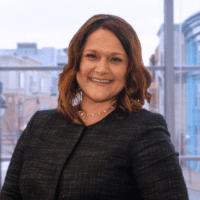Following the recent guidance from state and federal health authorities recommending restrictions on large, public gatherings, many public entities have questioned their legal obligations in holding public meetings during the ongoing coronavirus crisis. Given the fact the confirmed cases of the virus are expected to increase exponentially in the coming weeks, this issue may affect governmental entities for the next few months. The following are some recommended steps that a public entity could take to reduce the risk of spreading the virus.
- Rescheduling/Canceling Meetings.
Regarding School Districts, Section 421 of the Pennsylvania Public School Code requires that a school board hold a “regular meeting” at least once every two (2) months. Thus, is a School District has already held a regular meeting in March, it could cancel future meetings until the month of May. If it has not yet held a meeting in March, it could cancel that meeting and re-convene at the April meeting. Our office can advise on the procedure for canceling and rescheduling meetings. Generally, municipal codes require municipal governments to meet on a monthly basis. If a municipality has already held its March regular meeting, it could conceivably reschedule the April meeting until a later date in the month. Those entities who have not yet held meetings in March and, by law, must meet by the end of the month should follow the guidance below.
- Remote/Electronic Participation in Meetings
Remote participation in meetings is authorized by the Pennsylvania Supreme Court ruling in the case of Babac v. Pennsylvania Milk Marketing Board, and has been codified in the School Code and certain municipal codes. Many governmental entities have further established policies for remote participation. The vast majority of these policies limit the amount of Board or Council members who can participate remotely. The Pennsylvania Borough Code actually mandates that a quorum of Council be physically present in order to hold a meeting, thus limiting the amount of council members who can attend remotely. Absent such statutory language in the relevant school and municipal codes, a municipal legislative body is not legally required to have a physical quorum present to conduct business, all or some of the members may participate via remote means.
Additionally, in order to comply with the provisions of the Pennsylvania Sunshine Act, a public body must provide a reasonable opportunity for the members of the public to comment on any business before the public entity. This precludes a public entity from, for example, holding a private conference call to conduct business, regardless of the existence of a state of emergency. A public entity can hold a meeting remotely if all of the formalities of the Sunshine Law, such as appropriate notice and providing a forum for public comment, are followed. It is strongly recommended that you contact our office in order to discuss this course of action.
If your School District or Municipality requires guidance on procedures for canceling or holding an upcoming meeting during the ongoing coronavirus epidemic, you are encouraged to contact our office so we can discuss your options under the law. Different entities may have different responsibilities and requirements and it is best to discuss these issues on a case by case basis so your public entity is appropriately protected.

